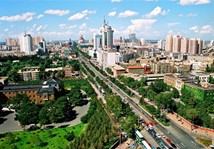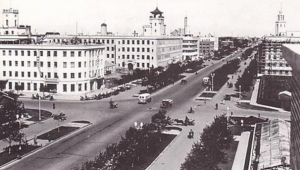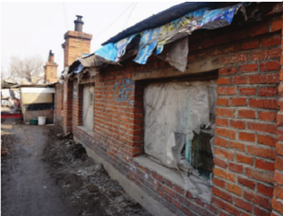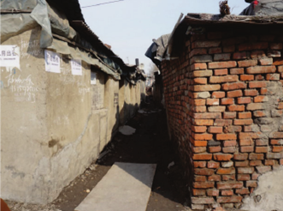June 26, 2023, by lzzre
PhD Blog: Oral Interviews About Life Experience in Changchun
By Yiming Xu, Geography PhD Student
My PhD project considers the colonial and postcolonial urbanism of Changchun, known previously as Hsinking when the city was the capital of the the Japanese colonial empire in Manchuria from 1932. . The project is focusing on how material geography and social experience intersected as the Japanese enacted their version of colonial urbanism by using archival documents, maps, newspaper sources and oral history interviews.
Changchun is my hometown city and I returned to Changchun for field work in September 2021, and from then I have been worked at the archives and Libraries for 8 months. However, due to the Covid epidemic and as many of the most useful archival sources were unavailable due to a digitisation programme, I embrace the opportunity of conducting interviews with Changchun residents to develop an history of the city during and after Japanese imperial control.
How to choose the interviewees was the first challenge. There are now only a few surviving residents who can remember this period, and some of those who can are unwilling to be interviewed. I had to change my criteria to find 60 to 80 year olds. The interviewees, or at least their parents, had lived in colonial Changchun. My first interviewees were a couple who were all retired teachers from a university. We did it in person and use progressively deeper questions to recall their memory. Thanks to their social networks, I interviewed three other intellectuals, who had all lived in colonial Changchun. They lived in different locations and their fathers had different occupations. But they presented me with roughly the same recollections of their life experiences. The images below are what a Chinese community residential house would look like. They were all poor, none could eat rice and none had access to medical care. The only difference was that one of them was educated, as he lived in a location close to the Japanese community. They both spoke some simple Japanese, which came from the Japanese government’s popularization of the language at the time. They all had a poor impression of the Japanese. Ms Li’s father was almost taken by the Japanese to work in the coal mines.
I likewise interviewed several retired workers. As they were relatively young, the conversation about them centred around life after the war. They recounted what happened to some Japanese after the war, being killed or living in lowly conditions. The agitation of the retired workers was a more vivid expression of their attitude of hatred towards Japan than the calm narratives of the intellectuals. It was somewhat unfortunate that these interviewees were all descendants of poor people. I had tried to find some descendants of Manchukuo officials but was not successful. One child of a Manchukuo diplomat made it clear that he did not want to be interviewed.
I am now working to use these unique reflections to help frame and interpret my analysis of the official archive as I write up a detailed historical geography of this example of Japanese colonial urbanism.
No comments yet, fill out a comment to be the first





Leave a Reply